
Ideal applications include
- Floor Scrubber
- Hospitals & Medicals
- Datacentre
- Mobility
- Rail
- Comms
- Solar
- Mining
- Telemetry
- Automation
- UPS
- Golf & Electric Vehicles
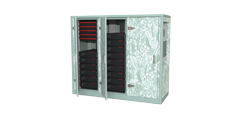
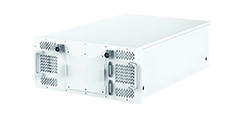
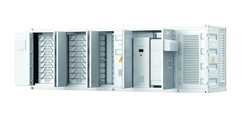
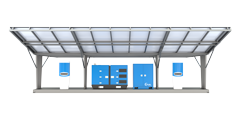
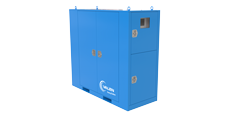
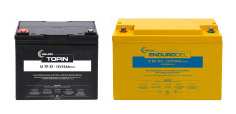
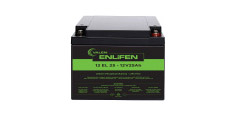
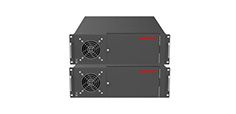
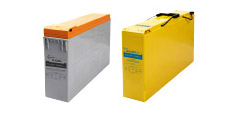
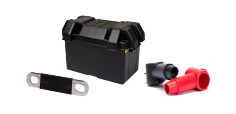
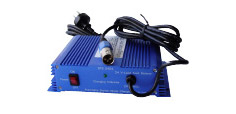
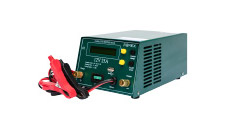
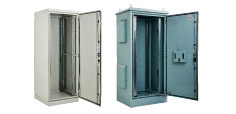
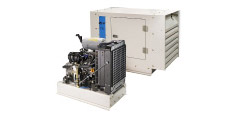
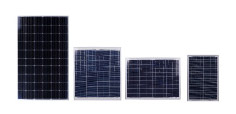

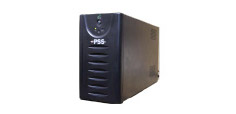
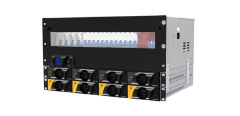
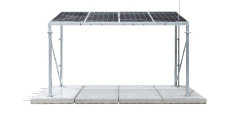
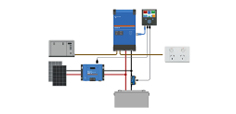

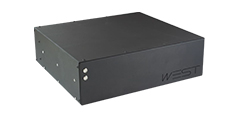
Looking for advanced lithium iron phosphate batteries and expert technical support?
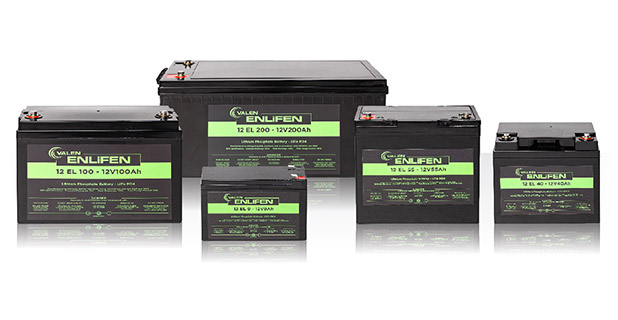
Valen ENLiFEN range features a Lithium Phosphate (LiFe PO4) battery constructed utilising individual 3.2V3200mAh cells in series and parallel. These Lithium cells are controlled by the Valen ENLiFEN Battery Management System (BMS). Customised BMS allows the Valen ENLiFEN
Battery to perform safely without the fear of thermal runaway and explosion.
Another crucial feature of the Valen ENLiFEN BMS is to equalise all individual Lithium cells in the battery, ensuring longevity.
Customisation ensures the Valen ENLiFEN battery range can be retrofitted into a range of restrictive space areas.
Thanks to the Valen ENLiFEN ranges flexibility, BMS and proven ability to withstand high temperatures, it has become the battery of choice for remote, space restrictive and hot environments such as monitoring equipment and signage.
Valen ENLiFEN battery range offers superior life with an expectancy of 6 to 10 times more than standard AGM batteries
Up to two thirds lighter in weight than standard AGM batteries
Safer battery option as the customised built-in Valen ENLiFEN BMS prevents short circuit, over-voltage and over-discharge, as well as thermal runaway
Customisation allows the Valen ENLiFEN to be fitted into areas standard VRLA batteries cannot be utilised due to size restrictions
Maintenance-free battery range dramatically reduces the time spent on site for battery-related issues
| Voltage | 12 Volt & 24 Volt nominal |
|---|---|
| Cells | Cylindrical 3.2V3200mAh |
| Container | ABS Plastic |
| Charge Voltage | Cycle 14.4V at 25°C Cycle 28.8V at 25°C Constant Voltage |
| Operating Temp* | -20°C to +60°C |
* However Valen recommend the ENLiFEN batteries be operated in the temperature range of 20°C to 30°C to obtain full life and optimum performance.
Unlike VRLA (Valve Regulated Lead Acid) batteries or traditional flooded wet cell batteries, Lithium batteries are classified as “dry” batteries as they do not generate power from a liquid solution and they do not produce gas.
Instead, power is generated by the movement of Lithium ions between the negative and positive electrodes. The positive electrode is made from a chemical compound called Lithium Iron Phosphate (LiFEPO4). The negative electrode is generally made from carbon (graphite).
A critical component of any high-quality Lithium battery is the Battery Management System (BMS). The BMS is a sophisticated instrument that sits inside the battery and ensures each battery cell is charged and discharged equally.
When a single Lithium cell is fully charged, the voltage rises suddenly and can reach dangerous levels very quickly. If this happens in only one cell, that cell can reach dangerous voltages before the total pack voltage is high enough to register as fully charged. To prevent this from occurring, the BMS balances the cells to ensure they all charge and discharge equally as well as preventing them from over-discharging.
A cheap or inferior BMS may provide reduced levels of protection for a battery resulting in adverse charge conditions that may severely reduce its operating life. Additionally, if you over-charge or over-discharge a Lithium battery without an adequate BMS, you will potentially damage the cells beyond repair
A high-quality Lithium battery with a sophisticated BMS will automatically disconnect loads if the voltage does too low, and disconnect chargers if the voltage goes too high.
Lithium monobloc batteries have a greater cycle life than VRLA batteries and can be discharged to a deeper depth without affecting the battery. A Valen ENLiFEN LiFePO4 battery has a useable DOD of 80% against a VRLA battery where the recommended DOD is only 50%, resulting in the Valen ENLiFEN having 30% more capacity when comparing the same battery capacity in the two technologies.
Lithium technology can efficiently provide power in high energy demanding applications and will maintain their voltage throughout almost the entire discharge curve.
Additionally, Lithium Phosphate monobloc batteries are on average three times lighter in weight than VRLA batteries and have been proven to cope with ambient temperatures of up to 60°C. Along with this, Lithium Phosphate batteries have a greater energy density, meaning you can get a larger capacity battery into the same dimensions of a VRLA battery.
Finally, Lithium batteries can be designed and manufactured to any footprint. They can be reshaped to fit into any existing cavity or around specific fittings. The battery cells can be packed to fit a long battery shape or a short and fat battery shape.
Voltage: 12 V
Capacity: 125 Ah
| Voltage | 12 V |
|---|---|
| SKU | 12ELFT125100 |
| Terminal | M8 |
| Length | 394 mm |
| Width | 110 mm |
| Height | 286 mm |
| Capacity | 125 |
| Box Quantity | 1 |
Voltage: 12 V
Capacity: 21 Ah
| Voltage | 12 V |
|---|---|
| SKU | 12EL02121 |
| Terminal | M6 |
| Length | 180 mm |
| Width | 76 mm |
| Height | 166 mm |
| C20 | 21Ah Ah |
| Capacity | 21 |
Voltage: 12 V
Capacity: 33 Ah
| Voltage | 12 V |
|---|---|
| SKU | 12EL33 |
| Terminal | M6 |
| Length | 199 mm |
| Width | 133 mm |
| Height | 157 mm |
| C20 | 33Ah Ah |
| Capacity | 33 |
Voltage: 12 V
Capacity: 40 Ah
| Voltage | 12 V |
|---|---|
| SKU | 12EL04040 |
| Terminal | M6 |
| Length | 195 mm |
| Width | 165 mm |
| Height | 175 mm |
| Capacity | 40 |
Voltage: 12 V
Capacity: 100 Ah
| Voltage | 12 V |
|---|---|
| SKU | 12EL100070 |
| Terminal | M8 |
| Length | 268 mm |
| Width | 168 mm |
| Height | 216 mm |
| Capacity | 100 |
| Box Quantity | 1 |
Voltage: 12 V
Capacity: 120 Ah
| Voltage | 12 V |
|---|---|
| SKU | 12EL120090 |
| Terminal | M8 |
| Length | 305 mm |
| Width | 169 mm |
| Height | 210 mm |
| Capacity | 120 |
Voltage: 12 V
Capacity: 135 Ah
| Voltage | 12 V |
|---|---|
| SKU | 12EL135090 |
| Terminal | M8 |
| Length | 305 mm |
| Width | 169 mm |
| Height | 210 mm |
| Capacity | 135 |
Voltage: 12 V
Capacity: 9 Ah
| Voltage | 12 V |
|---|---|
| SKU | 12EL0099 |
| Terminal | F2 |
| Length | 151 mm |
| Width | 65 mm |
| Height | 95 mm |
| C20 | 9Ah Ah |
| Capacity | 9 |
Voltage: 12 V
| Voltage | 12 V |
|---|---|
| SKU | 12EL0129 |
| Length | 151 mm |
| Width | 65 mm |
| Height | 94 mm |
Voltage: 12 V
Capacity: 25 Ah
| Voltage | 12 V |
|---|---|
| SKU | 12EL02526 |
| Terminal | M5 |
| Length | 174 mm |
| Width | 164 mm |
| Height | 125 mm |
| C20 | 25Ah Ah |
| Capacity | 25 |
Voltage: 12 V
| Voltage | 12 V |
|---|---|
| SKU | 12EL03021 |
| Length | 181 mm |
| Width | 77 mm |
| Height | 170 mm |
Voltage: 12 V
Capacity: 60 Ah
| Voltage | 12 V |
|---|---|
| SKU | 12EL06040 |
| Terminal | M8 |
| Length | 197 mm |
| Width | 165 mm |
| Height | 169 mm |
| C20 | 60Ah Ah |
| Capacity | 60 |
Voltage: 12 V
Capacity: 80 Ah
| Voltage | 12 V |
|---|---|
| SKU | 12EL08070 |
| Terminal | M8 |
| Length | 260 mm |
| Width | 168 mm |
| Height | 216 mm |
| Capacity | 80 |
Voltage: 12 V
Capacity: 9 Ah
| Voltage | 12 V |
|---|---|
| SKU | 12EL0109 |
| Terminal | F2 |
| Length | 151 mm |
| Width | 65 mm |
| Height | 95 mm |
| C20 | 10Ah Ah |
| Capacity | 9 |
Voltage: 12 V
| Voltage | 12 V |
|---|---|
| SKU | Y21.12EL01612 |
| Terminal | F2 |
| Length | 151 mm |
| Width | 98 mm |
| Height | 98 mm |
Voltage: 12 V
Capacity: 18 Ah
| Voltage | 12 V |
|---|---|
| SKU | 12EL01812 |
| Length | 151 mm |
| Width | 99 mm |
| Height | 99 mm |
| Capacity | 18 |
Voltage: 12 V
Capacity: 200 Ah
| Voltage | 12 V |
|---|---|
| SKU | 12EL200150 |
| Terminal | M8 |
| Length | 490 mm |
| Width | 171 mm |
| Height | 240 mm |
| Capacity | 200 |
Voltage: 12 V
| Voltage | 12 V |
|---|---|
| SKU | 12EL02012 |
| Length | 151 mm |
| Width | 99 mm |
| Height | 99 mm |
Voltage: 12 V
Capacity: 200 Ah
| Voltage | 12 V |
|---|---|
| SKU | 12EL240150 |
| Terminal | M8 |
| Length | 480 mm |
| Width | 170 mm |
| Height | 240 mm |
| Capacity | 200 |
Voltage: 12 V
Capacity: 24 Ah
| Voltage | 12 V |
|---|---|
| SKU | 12EL02421 |
| Terminal | M8 |
| Length | 180 mm |
| Width | 76 mm |
| Height | 166 mm |
| Capacity | 24 |
Voltage: 12 V
Capacity: 350 Ah
| Voltage | 12 V |
|---|---|
| SKU | 12EL350250 |
| Terminal | M8 |
| Length | 530 mm |
| Width | 266 mm |
| Height | 215 mm |
| Capacity | 350 |
Voltage: 12 V
Capacity: 40 Ah
| Voltage | 12 V |
|---|---|
| SKU | 12EL04033 |
| Terminal | M6 |
| Length | 194 mm |
| Width | 132 mm |
| Height | 173 mm |
| Capacity | 40 |
Voltage: 12 V
Capacity: 72 Ah
| Voltage | 12 V |
|---|---|
| SKU | 12EL07255 |
| Terminal | M6 |
| Length | 226 mm |
| Width | 135 mm |
| Height | 214 mm |
| Capacity | 72 |
Voltage: 12 V
Capacity: 80Ah Ah
| Voltage | 12 V |
|---|---|
| SKU | 12EL08090 |
| Terminal | M8 |
| Length | 305 mm |
| Width | 168 mm |
| Height | 230 mm |
| Capacity | 80Ah |
| Box Quantity | 1 |
Voltage: 24 V
Capacity: 12 Ah
| Voltage | 24 V |
|---|---|
| SKU | 24EL01221 |
| Terminal | M5 |
| Length | 181 mm |
| Width | 77 mm |
| Height | 175 mm |
| Capacity | 12 |
Voltage: 24 V
Capacity: 30 Ah
| Voltage | 24 V |
|---|---|
| SKU | 24EL03055 |
| Length | 226 mm |
| Width | 135 mm |
| Height | 207 mm |
| Capacity | 30 |
Voltage: 24 V
Capacity: 30 Ah
| Voltage | 24 V |
|---|---|
| SKU | 24EL03040 |
| Terminal | M5 |
| Length | 197 mm |
| Width | 165 mm |
| Height | 175 mm |
| Capacity | 30 |
Capacity: 50 Ah
| SKU | 24EL050120 |
|---|---|
| Terminal | M8 |
| Length | 342 mm |
| Width | 173 mm |
| Height | 212 mm |
| Capacity | 50 |
| Box Quantity | 1 |
Voltage: 24 V
Capacity: 100 Ah
| Voltage | 24 V |
|---|---|
| SKU | 24EL100150 |
| Terminal | M8 |
| Length | 480 mm |
| Width | 167 mm |
| Height | 240 mm |
| Capacity | 100 |
Voltage: 24 V
Capacity: 100 Ah
| Voltage | 24 V |
|---|---|
| SKU | 24EL100200 |
| Terminal | M8 |
| Length | 530 mm |
| Width | 266 mm |
| Height | 215 mm |
| Capacity | 100 |
| SKU | 3.2ELCC100 |
|---|---|
| Length | 123 mm |
| Width | 47 mm |
| Height | 252 mm |
| SKU | EL24100147 |
|---|---|
| Length | 200 mm |
| Width | 330 mm |
| Height | 250 mm |
Voltage: 12 V
Capacity: 50 Ah
| Voltage | 12 V |
|---|---|
| SKU | 12ELWY50 |
| Terminal | M6 |
| Length | 178 mm |
| Width | 127 mm |
| Height | 240 mm |
| Capacity | 50 |
Voltage: 12 V
Capacity: 50 Ah
| Voltage | 12 V |
|---|---|
| SKU | ELWY1250074 |
| Length | 178 mm |
| Width | 127 mm |
| Height | 240 mm |
| Capacity | 50 |
Voltage: 12 V
Capacity: 75 Ah
| Voltage | 12 V |
|---|---|
| SKU | 12ELWY75 |
| Terminal | M8 |
| Length | 178 mm |
| Width | 127 mm |
| Height | 310 mm |
| Capacity | 75 |






















17 Cataract Street
Lawson NSW 2783
Get Directions
105 Loughnan Street
Lake Cargelligo NSW 2672
Get Directions
135 Wedgewood Rd
Hallam VIC 3803
Get Directions
21B Sheffield Rd
Welshpool WA 6106
Get Directions
Office
3 Empire Street
Kaitaia 0410
Get Directions
Warehouse
17 Allens Road
East Tamaki Auckland 2013
Get Directions
An account is required to add products to your cart, please login or register for an account.